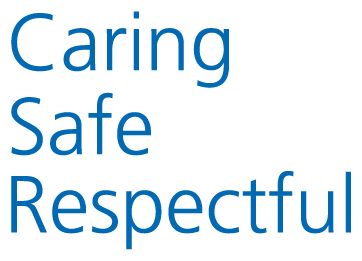Referrals are accepted from any health professional including GPs, medical consultants, allied health professionals or another member of hospital or community team. You can also refer yourself.
The person being referred must meet the referral criteria. If you are not sure if the person needs a referral you can contact the department by phone to discuss the situation or email bfwh.askaspeechtherapist@nhs.net.
Simply fill out our on-line referral form.
All referrals are screened and prioritised by a qualified Speech and Language Therapist. Appointments are offered according to priority and availability of therapists.
When to refer
Swallowing:
- Frequent coughing or choking when eating or drinking or immediately after
- Choking episodes (ie. complete blockage of airway) when eating
- Person complaining of food or drink getting stuck in throat or going the wrong way
- Person is refusing food and/or fluids where swallowing difficulty suspected
- Recurrent chest infections/pneumonia where aspiration of oral intake is suspected
- Person is tube fed however wanting oral intake and improvement in swallow is noted eg: secretion management has improved
- Swallowing recommendations in place, advice has been followed but needs have changed ie. significant improvement or deterioration
- Assessment and advice required regarding complex feeding decisions
- Transfers from other SLT Departments
Communication:
- Newly diagnosed communication difficulty eg: language disorder (aphasia), slurred speech, other speech disorder (eg: dyspraxia), stammer, selective mutism, voice (where no ENT input is r equired)
- Transgender voice
- Patient/carers need advice regarding alternative communication systems eg: communication aids, voice banking etc
- Previous SLT input, advice has been followed but needs have changed ie. significant improvement or deterioration
- Transfers from other SLT Departments
When not to refer
Swallowing
- Any difficulty swallowing tablets however managing food and drinks.
- What to do: discuss issue with GP or Pharmacist for advice
- Difficulty chewing food due to poor dentition in the absence of a swallowing problem
- What to do: offer soft, moist, easy to chew foods and seek advice from Dentist if appropriate
- Problems with poor appetite or refusing to eat/drink in the absence of a swallowing problem
- What to do: refer to Community Nutrition & Dietetics Service
- Issues with vomiting or regurgitation of food or drink OR sensation of food getting stuck below the level of the throat after swallowing.
- What to do: Discuss with GP and seek referral to Gastroenterology
Communication
- Difficulty managing oral intake due to reduced level of alertness
- What to do: seek advice from GP and refer to Community Nutrition & Dietetics Service if concerns regarding poor oral intake
- Weight loss with no apparent swallowing difficulties
- What to do: refer to Community Nutrition & Dietetics Service
- Previous diet and/or fluid modifications have been made with no noted change in swallowing ability
- What to do: continue with recommended diet and fluid textures
- An “eating and drinking with an unsafe swallow” decision has been documented with no changes in swallowing ability since documentation
- What to do: continue with documented plan
- Voice difficulties where patient is currently under the care of ENT OR where difficulties are associated with singing only
- What to do: Liaise with ENT service OR refer patient to singing coach
- Communication or swallowing difficulties if they have a registered learning disability
- What to do: refer to Blackpool Adult Learning Disability Service or Lancashire & South Cumbria Learning Disability Service
- Communication or swallowing difficulties resulting from traumatic or acquired brain injury
- What to do: refer to Integrated Stroke & Neurorehab Team
All inpatient referrals are dealt with internally by the E-Referral system. For Health Care Professionals wishing to refer a patient who is being transferred from another hospital/service, please contact the department on 01253 953 873 or email bfwh.
Where required, inpatients will be offered SLT follow up in the community once discharged from hospital. This is to ensure continuity of care and enhance the patient experience and safety.



